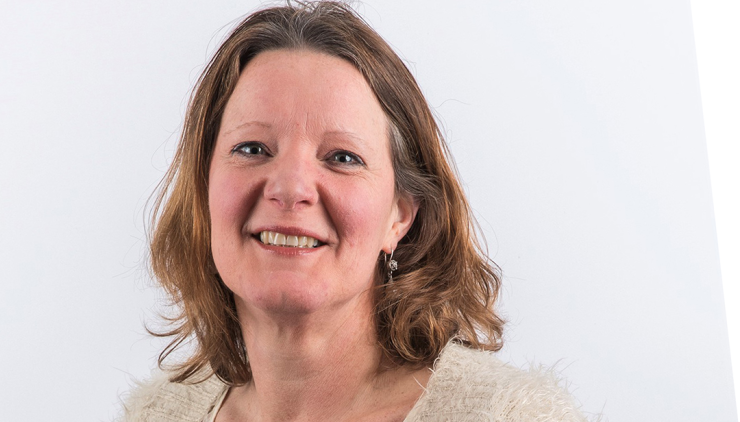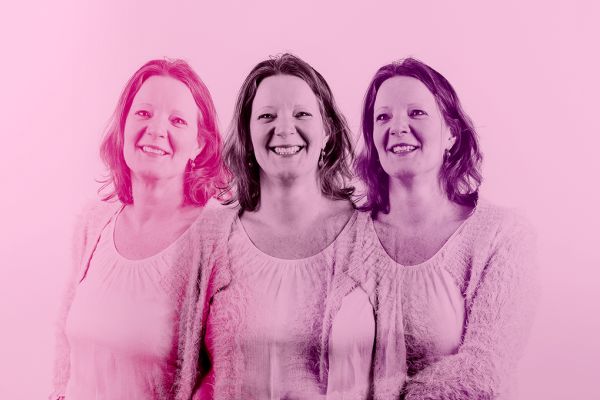-
31 juli
-
Wendbaar
Good leadership requires vulnerability

Society is characterised by rapid changes. Changes are also commonplace within Fontys University of Applied Sciences and education in general. Issues are becoming increasingly complex and no longer take place in one demarcated field. Everything is becoming more mobile and therefore less clear. Many issues cannot be solved unequivocally. And if there seems to be a solution, the outcome is uncertain. In his book Omarm de chaos, Jan Rotmans calls it not an era of change, but change of era. The key, he says, in these times is to embrace the chaos, accept that it is unsettled for a long time and try to find peace in the turmoil.
Easier said than done when no one knows what the future holds for us.
Within this context, Fontys sees it as its mission to make a contribution to society, which manifests itself for the educational programmes in the ambition to train more and different teachers. Education must be able to adapt faster to respond to developments in the market and to better suit the individual. More cooperation and harmonisation is needed to fulfil this ambition. For this reason, a more intensive cooperation between Fontys' educational programmes was started in 2021 under the programme name Transition Educational Programmes.
The intensive collaboration and challenges in this programme demand something of leadership. Whereas leadership used to be about formal authority in a traditional, vertical organisation, it is now much more demanding to work together in matrices, horizontally and vertically at the same time, and in changing roles. It requires leadership to achieve more together, to be able to see beyond the boundaries of organisational units. And it raises the question of which leadership qualities are needed within Fontys now that connection and cooperation are strategy, rather than a coincidence.
The central question here is: as a leader in an age of change, how can you use connection to achieve cooperation?
In the search for answers, this essay is about effective leadership in times of change. And about the role that connection and showing vulnerability play in this.
On effective leadership
With the change in the level of collaboration, something different is required of leadership.
"Someone who is not change-oriented can hardly become an effective leader," says Manfred Kets de Vries in Leiderschap ontraadseld (Leadership unravelled). According to Kets de Vries, effective leaders are dreamers and doers at the same time and are characterised by a clear vision and a desire to learn and experiment with new things. They learn from mistakes and lead by example.
Franklin Covey approaches effective leadership on the basis of "the seven characteristics of effective leadership". He identifies traits that can be used in personal leadership, such as being proactive, paying attention to important matters and keeping the end point in sight. In addition, says Covey, there are steps a leader can take to be effective in connecting with others. Such as thinking in 'win-win', not compromising and looking for the better solution, while still being uncertain what it might look like.
Brené Brown emphasises the importance of vulnerability in this context. She says: "Vulnerability is not a question of winning or losing. Vulnerability is the courage to show up when you cannot control or cannot manage the outcome". She writes about this at length in her book The Power of Vulnerability: have the courage not to want to be perfect.
Leaders are effective when they have the ability to ask questions and hear the other person. If they can have difficult conversations with dialogue so that conversations actually achieve something. If they dare to listen without judgement. Developing a learning and researching attitude plays an important role in this. Within Fontys, a learning attitude is not yet deeply rooted. It is in some individuals and teams, but not yet as a collective.
Self-knowledge and vulnerability at the heart of connection
Seeking and creating connection in a team is an important prerequisite for good teamwork. "Good leadership is also teamwork, nobody can do it alone," argues Kets de Vries in an article in ManagementScope.
Collaboration therefore requires connection. And connection requires opening up. To others and especially to yourself. Staying with yourself requires self-knowledge. You need to know your limitations, know what your weaknesses are. It is necessary to know yourself well in order to show this vulnerability.
The good news is that by reflecting and being able and daring to look inside, this deep self-knowledge can be developed, say Brown, Kets de Vries and Rotmans. By dwelling on your beliefs, behaviours and by searching, looking and feeling deep inside yourself. By not denying your fear but rather seeking it out. Making yourself vulnerable. This requires time, reflection and sufficient rest and relaxation. And not just once, but always paying attention to this.
Feedback from colleagues inside and outside the team is part of this. Brown mentions the importance of feedback. "Without feedback, change and growth are impossible."

The power of feedback
Learning to provide each other with adequate feedback and ensuring the right forms of conversation is key to creating connection from vulnerability. Short-cycle feedback 'just in time' is most effective here. It takes attention, practice and vulnerability for feedback to be effective.
In this light, Covey states that it is important to understand why people do things the way they do them. He calls this "understanding first, before you want to be understood". Empathic listening and seeking synergy also come into play with this trait. Achieving this is not the easiest path. It takes time, perseverance and courage.
Feedback - especially critical comments - is not always given within Fontys. Not to each other and not to students either. If we learn to give and receive more and better feedback, to dare to address each other, there will be a basis for having a good conversation with each other. In this way, we handle the relationships we have with each other with care, without being "too nice" to each other.
Together is more than the separate parts
All the above insights lead to the conclusion that working together goes better by showing vulnerability and thereby strengthening connection. Connection with the people around you and connection with yourself. Leadership therefore lies precisely in the little things, says Rotmans. Realising that it starts with you is the most important thing. "If you think things should be different, make yourself heard and try to make it better. Just by being yourself."
True collaboration requires putting your own interests aside from time to time. It takes time to learn from and with each other and share knowledge. Looking at other parts of the organisation, being open to a different approach and respecting others. It requires leniency towards yourself and others. At the heart of this is the ability to look inward, to develop. To understand yourself and also dare to show yourself. The moment you know what is important to you and what you want to go for, qualities like proactivity, empathic listening and reflection can be used in a more targeted way. That way, also - or especially - in these current confusing times, they contribute to connecting with yourself and others.
As a leader, you want to fulfil ambitions, achieve goals with your team and achieve collaboration. Better cooperation starts with better genuine listening to each other. And that starts with listening to yourself. By staying close to yourself, you show vulnerability and courage to realise connection. To ensure that the whole becomes more than the sum of its individual parts.
Janneke Gielisse,
with thanks to Frans Möhring and Peter Creemers for reading along and their feedback on the essay.
Previously published - not publicly - at TIAS, as part of the Executive Master Management & Organisation, module Leadership.
